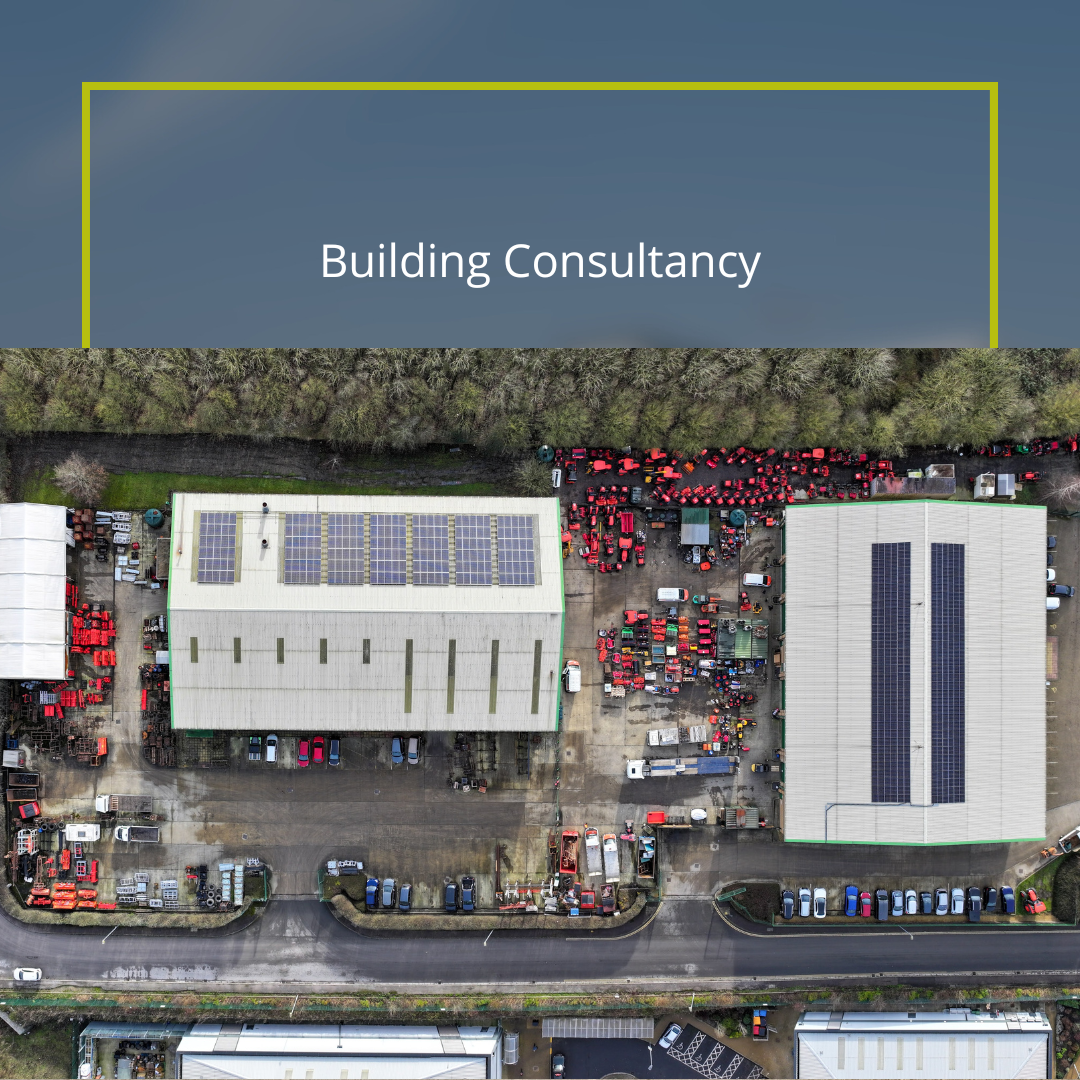
The pros and cons of drone use in commercial property surveying
June 10, 2025
The world of surveying has undergone a remarkable transformation in recent years, largely driven by advances in drone technology.
According to a report by PwC*, it is estimated that drones could contribute £45 billion to the UK economy, with net cost savings of £22 billion by 2030.
At Kirkby Diamond, our Building Consultancy team recently explored the advantages and challenges of drone use in commercial property surveying. Here's what we found.
What can drones help with?
Drones offer a wide range of exciting capabilities. At Kirkby Diamond, for our building surveying projects we utilise a drone to inspect high level areas of a property including roofs, gutters, and chimneys to capture detailed imagery. But how do drones compare to traditional tools like cherry pickers, which have long been used for accessing these elevated areas?
Cost considerations
Before the COVID-19 pandemic, drone surveys were relatively rare and costly - often twice the price of hiring a cherry picker. However, rising fuel prices during and after the pandemic made cherry pickers less economical. Meanwhile, increased regulation around drone usage helped professionalise the industry, filtering out casual users and boosting the number of trained drone surveyors. This, in turn, has driven costs down for clients and made drone surveying a more accessible option.
Privacy concerns
Our team recognised that while drones offer numerous benefits, privacy remains a concern. Members of the public sometimes perceive drones as intrusive, leading to the need for advance notification to nearby properties - or in some cases, uncomfortable confrontations on-site.
Storage and data management
Drone pilots typically capture hundreds of images and video clips to avoid missing crucial details and to prevent the need for repeat visits. However, this creates challenges around data storage, especially since records often need to be retained for up to 15 years. The volume of information can also add time and cost when it comes to review and analysis.
Weather dependency
Our team agreed that weather plays a critical role in drone surveying. Wind, rain, and poor visibility can compromise both safety and data quality, often forcing teams to reschedule surveys. Flexibility in planning is essential to conduct a safe drone survey.
Communication and coordination
Drone surveys are sometimes conducted independently of the main site survey, which can lead to misunderstandings about what areas need to be assessed. To mitigate this, it’s crucial that drone surveyors have a clear, detailed brief and a thorough understanding of the property before they begin.
Deeper insights and greater coverage
Despite these challenges, the benefits of drone surveys far outweigh the drawbacks. Drones provide access to areas that cherry pickers simply cannot reach, and they deliver comprehensive aerial views of roofs and structures. Unlike cherry pickers, which may be limited by building size or location, drones can efficiently capture the full extent of a property, reducing the risk of missing critical issues.
Insights from the KD team:
Steve Cable, a Drone Surveyor at Kirkby Diamond with 18 years’ experience in property surveying and over 5 years flying drones professionally, shared his views:
“It is great to see drones revolutionising the industry, changing the way we conduct our surveys. For the most part, there are no issues when conducting a survey. However, wildlife can often become a risk. Birds nesting in roof spaces or bathing in standing water can become aggressive when they feel threatened by the drone. In such cases, I’ll land the drone and wait for them to calm down before continuing. Location also plays a key role. In built-up areas, I’ll use a lightweight sub-250g drone to minimise risk to the public, ensuring we can gain access to all required areas both legally and safely.”
Steve conducts both a pre-site survey and an on-site assessment to identify any potential hazards before flying.
Looking ahead: The future of surveying with drones:
According to Mark Pepper, Head of Building Consultancy at Kirkby Diamond, drone surveys have become an important tool of our inspection process - particularly for roof assessments. “Their ability to gather high-quality, comprehensive data enables us to offer clients better advice and deeper insight than ever before. As technology continues to evolve, drones are set to remain an indispensable tool at Kirkby Diamond.”
If you’d like more information or a quote for your own drone project, please contact us at info@kirkbydiamond.co.uk.
*PwC report: Skies Without Limits v2.0


Mark Pepper
BSc (Hons), MRICS / Executive Partner
email mark.pepper@kirkbydiamond.co.uk phone 01582 738 866Steve Cable
GVC & A2 CofC / Drone Pilot Surveyor
email steve.cable@kirkbydiamond.co.uk phone 01582 393 333Grant Whittaker
BSc (Hons), MRICS / Associate
email grant.whittaker@kirkbydiamond.co.uk phone 01908 678 800